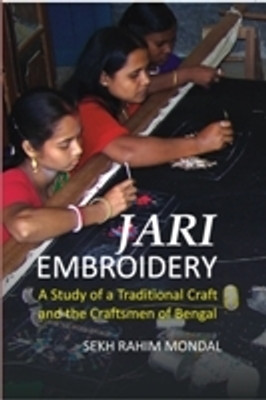Jari Embroidery: a Study of a Traditional Craft and the Craftsmen of Bengal(Paperback, Sheikh Rahim Mondal)
Quick Overview
Product Price Comparison
About The Book: Traditional arts and crafts have been the very core of Indian civilization. Jari works is a kind of hand embroidery and an important artistic craft of this country. It is one such home industry and small scale entrepreneurship which has a long tradition in India and gradually attracting the attention of world market in the global era. But research studies on this artistic craft and craft producers are very negligible. This book solely devoted to explore the social framework of Jari embroidery work and also to examine the socioeconomic life of the Jari embroiderers on the basis of information collected through field investigation. The present empirical study seeks to explore the manufacturing process i.e. the tools, technology and division of labour involved in production, the structural and organizational aspects of this craft production, the entrepreneurial activities, employeremployee relations and marketing, the economic, social and cultural life of the Jari embroiders and the nature, extent and problems of child as well as women labourers involved in Jari embroidery work. This book also highlights some policy implications of major findings of the study. With its original data and fresh theoretical perspective, the book will serve the interest of social scientists, policy makers and civil society activists. About The Author: Dr. Sekh Rahim Mondal received his M.Sc. (Gold Medalist) and Ph.D. degrees in Anthropology from the University of Calcutta and specialized himself in the field of Social and Cultural Anthropology. He is currently a Professor of Anthropology and Sociology in the Centre for Himalayan Studies and Honorary Professor of the Department of Anthropology, University of North Bengal. Professor Mondal is the author of five books like: 1. Stratification, Hierarchy and Ethnicity in NorthEast India, Joint Ed. (1991): 2. Dynamics of Muslim Society (1994): 3. Muslims of Siliguri (1997): 4. Educational Status of Muslims (1997) and 5. Rural Mus


